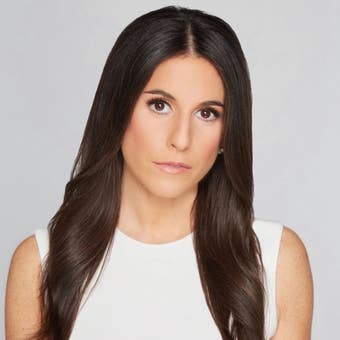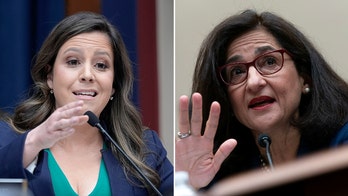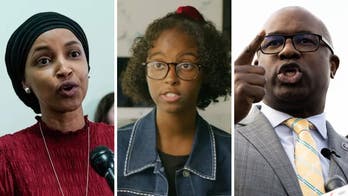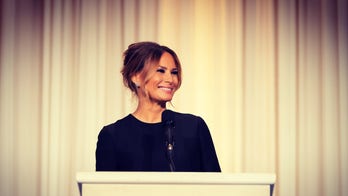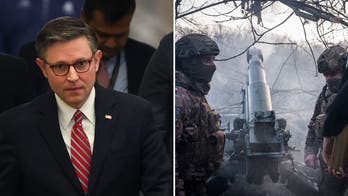Religious groups slam Biden's child care plan in Build Back Better bill
Becket Fund for Religious Liberty's Montse Alvarado argues the plan's provisions target faith-based child care providers and hurts religious liberty.
EXCLUSIVE: House Economic Disparity and Fairness in Growth Committee Chairman Jim Himes stressed the importance of investment in early childhood education, saying a failure to invest "ought to trouble" both Democrats and Republicans, and calling for bipartisan support of the measure included in President Biden's Build Back Better economic plan.
In an interview with Fox News Tuesday, Himes, D-Conn., said "one of the best things" the United States can do "both economically, in terms of return on investment, and even morally" is to invest in children.
"We need to do a better job in terms of setting up all our kids to succeed," Himes told Fox News, adding that it should be a bipartisan issue and one "where we can find some agreement."
"The United States — we love to say we’re number 1," Himes told Fox News. "But when it comes to investment in our children, we’re 35 out of 37 — we’re not number 1."
Himes was citing data from the Organization for Economic Cooperation and Development (OECD), which found that the United States invests fewer public dollars in early childhood education and care relative to gross domestic product (GDP) than almost all developed countries — ranking 35th out of the 37 countries tracked by the organization.
"That ought to trouble all of us that we’re not number 1 in investing in our children," Himes said. "And it ought to trouble us morally, it ought to trouble us economically, and it ought to trouble us from a sense of competition."
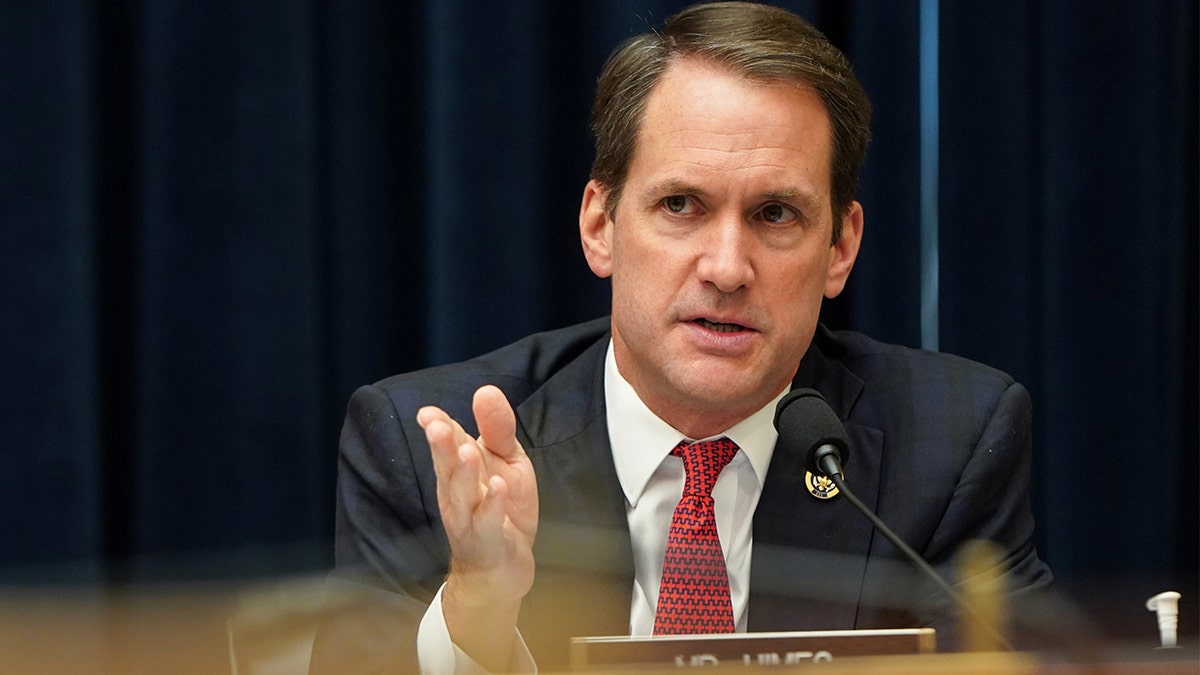
Rep. Jim Himes, D-Conn., asks a question during a House Financial Services Committee hearing on Capitol Hill in Washington, Sept. 22, 2020. (REUTERS/Joshua Roberts/Pool)
He added: "Our kids are going to compete with Chinese kids and German kids and British kids, and we’re short-changing those kids, and we’ve got to change that."
Biden’s Build Back Better plan includes investments in expanding early education and child care programs, aiming to bring back workers, especially women, who left jobs during the COVID-19 pandemic to look after children when schools were closed.
Under the plan, Americans would be offered two years of free preschool plus two years of free community college. Millions of families would also become eligible for expanded child care subsidies.
"Early childhood is so important," Himes told Fox News. "The die is cast for a lot of Americans before they’re 5 years-old, and I hate to say that — it's not like there aren’t examples of 17-year-olds who had really, really rough childhoods and ultimately succeeded — but the reality is, for an awful lot of Americans, the die is cast, even before you’re 5 years old."
Himes said that children in affluent communities arrive to kindergarten "with big vocabularies, and in some cases, knowing how to read," while children growing up in communities "that don’t have those resources often show up, just way, way behind."
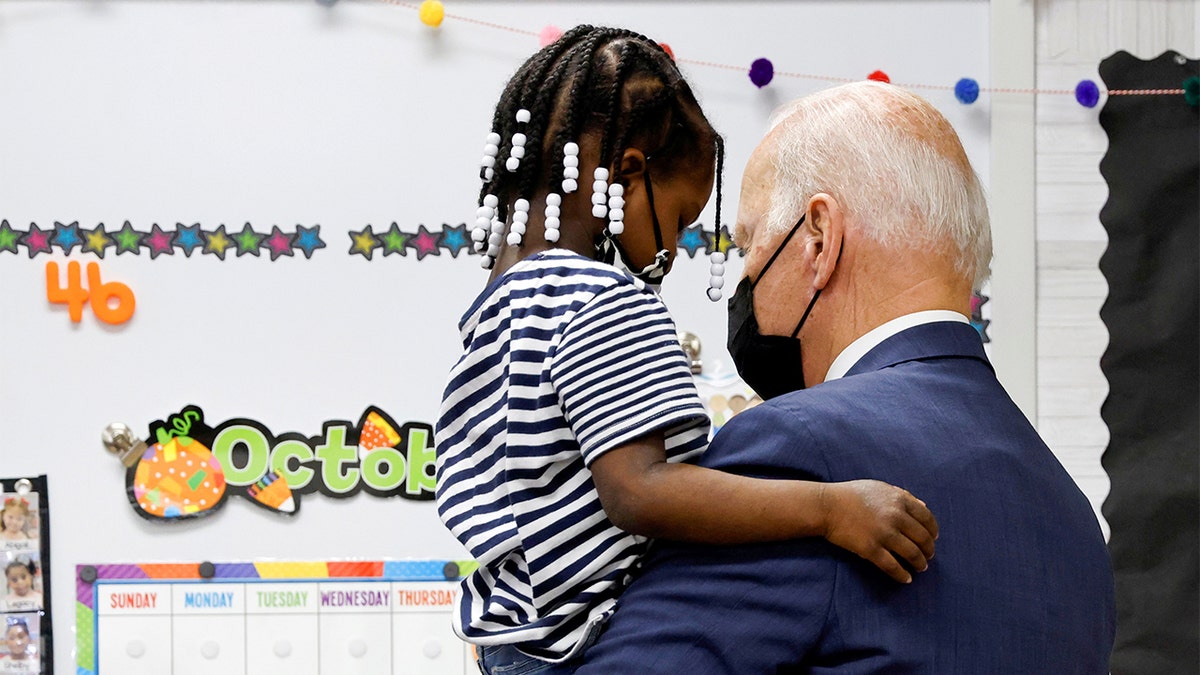
President Biden holds a child as he visits a pre-kindergarten class at East End Elementary School to highlight the early childhood education proposal in his Build Back Better infrastructure agenda in North Plainfield, New Jersey, Oct. 25, 2021. (REUTERS/Jonathan Ernst)
"When I say investment in our youngest children, I don’t just mean dollars," Himes said. "I mean parental attention, and the support of a community."
Critics have balked at the price tag of the more than $1.75 trillion Build Back Better plan and add that the early childhood education plan, which would cost nearly $400 billion, implements "cradle-to-grave" government dependency and threatens the role parents and families have in raising their children.
Republican Sen. Bill Hagerty of Tennessee, in an op-ed for Fox News, argued that under the plan, "the federal government—and no doubt the teachers unions—will decide which teachers are acceptable and what pre-kindergarten children may learn—at the same time crowding out private, faith-based, and other family-oriented preschools and child care."
"Under Biden’s massive spending and taxation plan, federal government preschools and child care facilities will be the only choice left for parents," Hagerty wrote.
But Himes pushed back against critics like Hagerty, saying the extension of the child tax credit "simply sends more money to parents of children."
"More money means more options," Himes said. "It is not like the money is constrained, with the government telling you to spend it on X, Y and Z."
BIDEN'S SPENDING BILL COULD DOUBLE CHILD CARE COSTS FOR MIDDLE-CLASS AMERICANS
Himes also pointed to the provision in the measure that includes tax credits for families below a certain income level, ensuring that those families do not pay more than 7% of their income for child care.
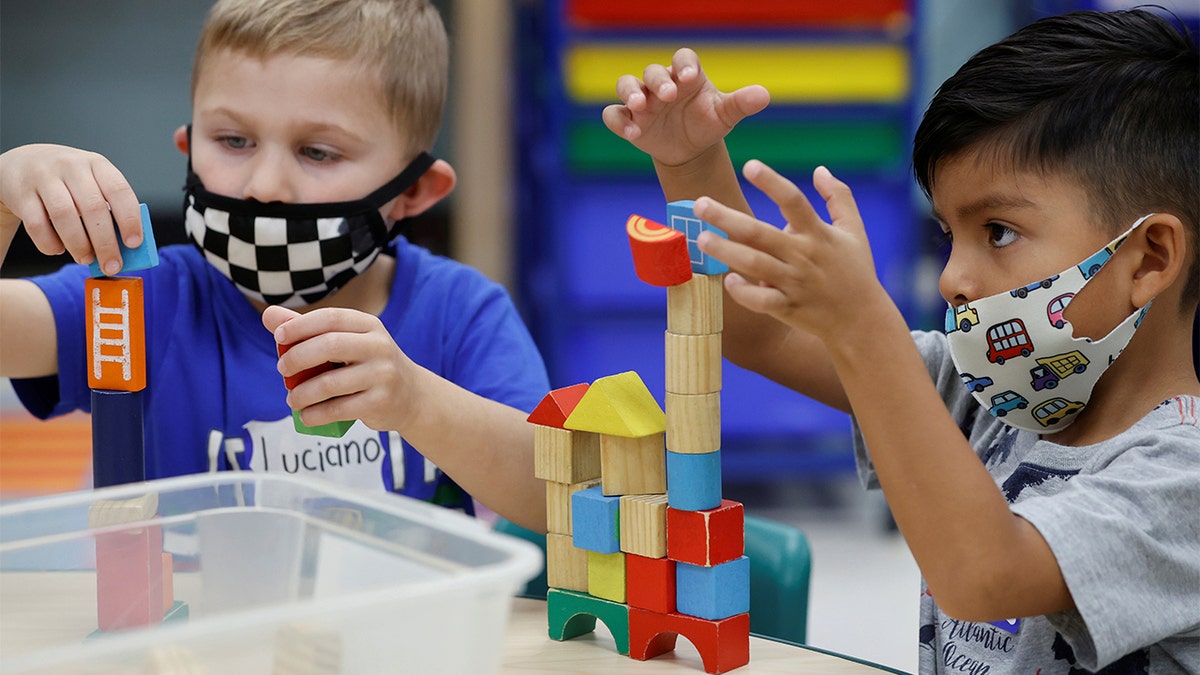
Children wear masks and wait for President Biden to visit their pre-kindergarten class at East End Elementary School to highlight the early childhood education proposal in his Build Back Better infrastructure agenda in North Plainfield, New Jersey, Oct. 25, 2021. (REUTERS/Jonathan Ernst)
"If we’re going to spend public money to help send 4-year-olds to pre-K, there have to be certain standards," Himes said, referring to a mandate for educators of the programs to hold at least a bachelors degree. "But the notion that we’re taking options away from parents is exactly wrong, because by providing them with more resources, we're giving them more options."
Other critics argue that the program is ripe for fraud — an argument Himes said is a risk in any federal program.
"Fraud is never OK, and of course, any time the government subsidizes something, there is a potential for fraud," Himes said. "We saw it with the PPP program. … But that's not a reason not to do it."
EXPANDED CHILD TAX CREDIT WOULD PERMANENTLY REDUCE CHILD POVERTY, CBPP FINDS
Himes added that "humans aren’t angels" but stressed the importance of Congress ensuring there are "measures in place to minimize that."
Back in 2014, the inspector general for the Internal Revenue Service (IRS) found abuse in the child tax credits — with the government in 2013 paying out at least $5.9 billion in improper payments.
But Himes argued that more significant tax fraud comes from individuals underreporting income.
"I promise you, it's not a middle class or a working family problem as much as it is, you know, fraud associated with underreporting income," Himes said.
Himes took a swipe at his Republican colleagues, saying that they "were delighted to pass a massive tax break with tax credits for people with lower tax returns" under the Trump administration.
"What we’re saying here, is, instead of for corporations, we’d like to find ways to lower taxes for the middle class so that they can afford child care," Himes said. "Now, I’m not naive — I don’t think I’m going to say that and have Republicans say, ‘I’m on board,’ I think it is going to take a lot of work."
CLICK HERE TO GET THE FOX NEWS APP
Meanwhile, Himes discussed his committee’s work in "examining the increasingly significant disparities in American wealth and income" and told Fox News the work is "important" for a number of reasons.
"Number one, there is a moral dimension," he said. "Two, there is an economic problem — you can reach a point in disparity where your economy as a whole suffers because productivity goes down, and the middle class doesn’t have purchasing power, etcetera."
He added: "And then there is a political dimension to it as well. I am a believer that when enough Americans feel they don’t have a stake in the system, our democracy is at risk."
The Associated Press contributed to this report.
